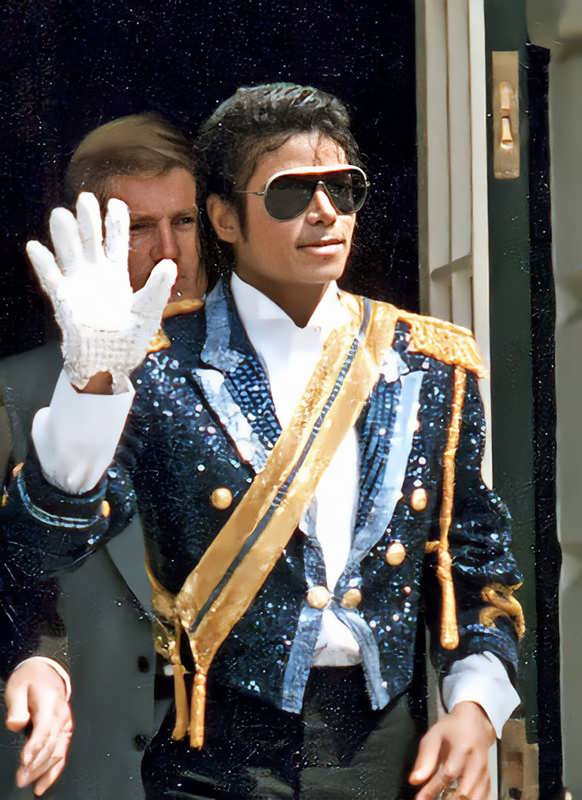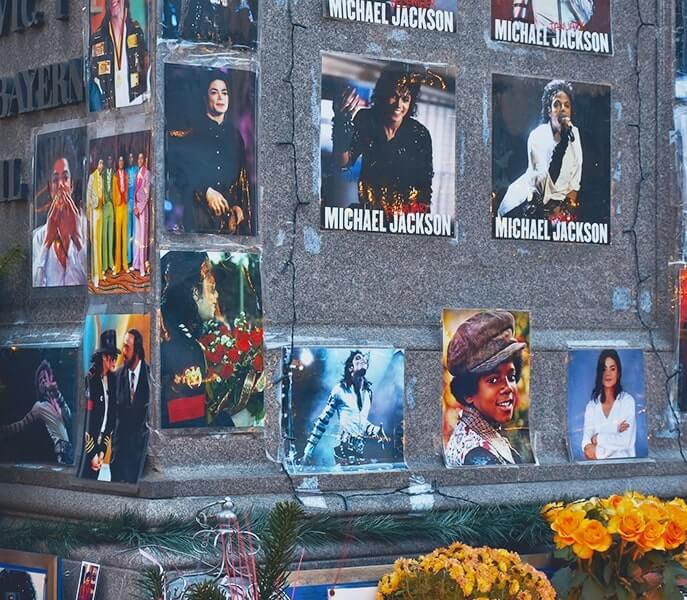Demystifying Michael Jackson’s Skin Condition
When it comes to Michael Jackson, one topic that has always been shrouded in mystery and controversy is his changing skin tone. What Happened To Michael Jackson Skin actually?
For years, rumors and speculation have circulated about what caused the pop icon’s skin to lighten and appear different from its original darker hue.
In this article, we will delve into the truth about Michael Jackson’s skin and explore the facts behind his health issues.
The Early Years: Michael Jackson’s Natural Skin Tone
However, as he grew older, Jackson’s skin began to lighten, leading to widespread speculation about what happened to Michael Jackson’s skin.
But before we can dive into the reasons behind Michael Jackson‘s changing skin tone, it’s essential to understand his natural complexion.
Jackson was born into a black family in 1958, and he had a dark brown skin tone during his childhood years.
As a child, Jackson suffered from a skin condition known as vitiligo, which causes loss of pigment in the skin, leading to white patches.
In 1986, he was diagnosed with lupus, an autoimmune disease that causes the immune system to attack healthy tissues and organs.
The Rumors Begin: The Start of Michael Jackson’s Skin Controversy

The first rumors about Michael Jackson’s skin began to circulate in the mid-1980s, around the time of his Thriller album’s release.
Some media outlets began to speculate that Jackson was using skin-lightening creams to achieve a paler complexion.
However, Jackson always denied these claims and stated that his changing skin tone was due to vitiligo.
The Truth Behind Michael Jackson’s Vitiligo
Jackson’s dermatologist, Dr. Arnold Klein, confirmed that the singer was indeed suffering from vitiligo. In an interview with ABC News in 2009, Dr. Klein stated that he had treated Jackson for the condition for over 25 years.
Vitiligo can cause the loss of pigment in the skin, leading to white patches and an uneven skin tone.
To treat the Vitiligo condition, doctors sometimes use a technique known as depigmentation, which involves lightening the unaffected skin to match the white patches.
It is believed that this technique is what caused Jackson’s skin to appear lighter over time.
The Effects of Lupus on Michael Jackson’s Skin
In addition to vitiligo, Michael Jackson was also suffering from lupus, an autoimmune disease that affects the skin and other organs. Lupus can cause a range of skin problems, including rashes, lesions, and hair loss.
It is possible that Jackson’s lupus contributed to the changes in his skin tone, as the disease can cause skin discoloration and pigmentation problems.
The Truth About Michael Jackson’s Death (When & How He Did)
The Media’s Role in Michael Jackson’s Skin Controversy
Despite the medical evidence supporting Michael Jackson’s claims about his changing skin tone, the media continued to speculate about his use of skin-lightening creams.
This speculation only fueled rumors and misinformation about the singer’s health and fueled the controversy surrounding his appearance.
It is essential to understand that the media played a significant role in perpetuating these myths and rumors about Jackson’s skin.
So, What Caused Michael Jackson’s Skin Condition?

As previously mentioned, Michael Jackson’s skin condition was caused by vitiligo and lupus. Vitiligo is a skin condition that affects approximately 1% of the world’s population and causes a loss of pigmentation in the skin.
Lupus, on the other hand, is an autoimmune disease that affects various parts of the body, including the skin.
The combination of these two conditions led to the changes in Michael Jackson’s skin tone over time.
How Many Times Did Michael Jackson Change His Skin?
Contrary to popular belief, Michael Jackson did not change his skin tone multiple times. Instead, his skin gradually lightened over time due to his vitiligo and lupus diagnoses.
While some media outlets may have speculated about Jackson using skin-lightening creams, there is no evidence to support these claims. It is essential to rely on medical evidence and facts when discussing this topic.
Does Michael Jackson Have a Skin Problem?
Yes, Michael Jackson had skin problems, namely vitiligo, and lupus. These conditions caused the loss of pigmentation in his skin, leading to white patches and an uneven skin tone.
It is crucial to understand that these conditions are medical in nature and not a result of a personal choice or cosmetic procedures.
What Race Is Michael Jackson? Reveal His Ethnic & Ancestors
Conclusion: What Happened To Michael Jackson Skin
In summary, Michael Jackson’s skin condition was a result of his medical conditions, and there is no evidence to support claims that he used skin-lightening creams.
We should focus on his musical legacy and respect his privacy and dignity, rather than perpetuating rumors and speculation about what happened to Michael Jackson’s skin.
While the media may have fueled speculation and controversy about Jackson’s appearance, it is essential to rely on medical evidence and facts when discussing this topic.
Michael Jackson’s skin condition was a personal matter, and it is crucial to respect his privacy and focus on his musical legacy instead of his appearance.
All 371 Michael Jackson Songs, Including Unreleashed Records
End Words & Some Advice

It is time to put an end to the rumors and speculation surrounding Michael Jackson’s skin and focus on the facts.
As a society, we must remember to respect the privacy and dignity of individuals, especially those who are no longer with us.
Michael Jackson was a musical icon who left behind a lasting legacy, and it is that legacy that we should focus on, not his appearance.
In conclusion, Michael Jackson’s changing skin tone was the result of medical conditions, not skin-lightening creams.
We should strive to rely on facts and evidence rather than rumors and speculation when discussing this topic.
As a society, we must work towards understanding and compassion for those who suffer from medical conditions and respect their privacy.








The post is fascinating. I learnt a lot from it. Thanks for sharing your knowledge and experiences.